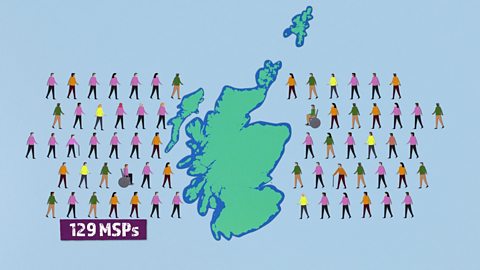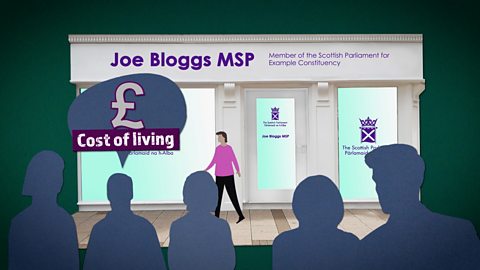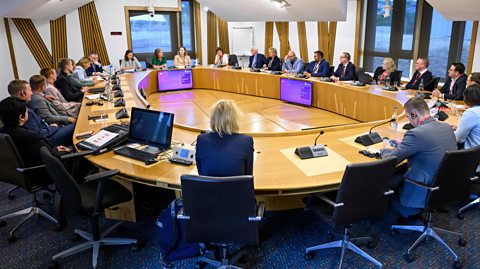The role of trade unions in Scotland
Quick version
What Are Trade Unions?
Trade unions are organisations focused on improving pay and working conditions for their members. Workers pay a subscription fee to join, gaining benefits like legal support, financial perks, and exclusive discounts.
Trade unions advocate for employees by negotiating critical issues such as pay, pensions, and benefits. They are represented in the workplace by union representatives, or shop stewards who facilitate communication between employees and management.
Union members can:
- attend meetings to discuss workplace conditions
- vote in ballots for union actions and representative elections
- run for shop steward roles
- take part in industrial actions (e.g., strikes).
Employers may either resist or support union involvement. Some view unions as disruptive, while others recognize the importance of strong worker-management relations.
Union rights include:
- organising industrial actions to protect workers’ interests
- conducting secret ballots to decide on union activities
- collecting membership fees.
Union responsibilities include:
- avoiding pressure for workers to join
- keeping members informed of workplace changes
- ensuring all actions are lawful and peaceful.
Unions with more members have greater influence, allowing them to fund campaigns and gain public support, potentially impacting policies and even elections.
Public support depends on:
- the relevance of union campaigns
- the impact of union actions
- how actions, like strikes, affect the public.
Learn in more depth
What are trade unions?
Trade unions are organisations of workers which attempt to improve the pay and working conditions for their members.
In return for paying a subscription, members receive a wide range of benefits. These can be legal such as financial help with access to a lawyer.
Many trade unions offer a range of financial benefits to members such as cheaper deals with mortgages, discounts on holidays and car purchases. Trade unions exist in a wide range of occupations and professions.
A trade union may negotiate with the company over money matters, such as pay and pensions. Often within a workplace, a trade union representative, known as a shop steward will act as a ‘go-between’ between worker and management. He/she will try to resolve problems which may arise.
How do people participate in a trade union?

Members can participate in trade union activities by:
- attending union meetings in the workplace and discussing issues such as pay and conditions
- voting in ballots held by the union, sometimes they will decide whether or not the union should take action. At other times the ballot may be to elect a new representative within the union such as a shop steward
- standing as a candidate in an election to become a shop steward
- taking part in a form of industrial action such as a work-to-rule or a strike
Some employers do not recognise trade unions as they feel they are bad for business and may therefore discourage staff from joining. Other employers understand that good worker/management relations are important.
Trade unions work with employees and management on a daily basis, resolving workplace issues.

Trade union rights and responsibilities
Trade unions have rights but they also have responsibilities which they must adhere to.
Trade union rights
- to take industrial action to protect the rights of workers
- to hold a secret ballot to establish if the majority of members are in favour of taking action
- to collect a trade union subscription from their members
Trade union responsibilities
- not to pressure anyone into joining a trade union
- to ask their members about changes in the workplace
- to ensure that all forms of trade union activity and industrial action are peaceful and within the law
How influential are trade unions?
Trade unions with large memberships can be more influential.
- they can argue that they represent a significant part of the population
- a large trade union can demonstrate it represents a large number of people can have a larger influence on voting and elections
- more members means more people can become active in trade union organisation, campaigns and activity
- more members means more funding - the trade union can use this for larger campaigns or even to fund legal action
However a trade union's influence also depends on the views of the wider public:
- do they care enough about the issues the pressure group campaigns on?
- do they support the union's position?
- do they approve of the union's methods and actions?
- how are they affected by the union's activity - for example people might react in different ways to a strike that causes disruption
Quiz
Recap what you have learned
Trade unions are worker organisations focused on improving members' pay and working conditions. Members pay a subscription fee to gain benefits, including legal assistance and financial perks like mortgage deals and discounts.
Roles and negotiations of trade unions
- Trade unions play a vital role in advocating for employees, particularly in negotiating key financial aspects like salaries, pensions, and benefits.
- Workplace union representatives, known as shop stewards act as as a go-between working to bridge communication between employees and management to address and resolve workplace concerns effectively.
Union members can:
- Attend workplace meetings to discuss pay and conditions.
- Vote in union ballots to decide on actions or elect representatives.
- Stand as candidates for shop steward positions.
- Participate in industrial actions, such as strikes or work-to-rule actions.
Employers recognition of unions:
- Some employers resist union involvement, viewing it as a potential disruption to business.
- Others acknowledge the value of good worker-management relations and support union roles.
| Trade union rights | Trade union responsibilities |
|---|---|
| Organising industrial actions to protect workers' rights | Not pressuring anyone into joining |
| Holding secret ballots to decide on union actions | Consulting members on workplace changes |
| Collecting membership subscriptions | Ensuring all union activities are lawful and peaceful |
Larger unions with many members can be more influential because:
- They represent a larger segment of the population and may sway votes and elections.
- With more members, unions have more funds for campaigns and potential legal action.
Public support hinges on:
- the union's campaign relevance
- the union’s actions
- how the public is impacted (e.g., disruption from strikes).
More on Democracy in Scotland
Find out more by working through a topic
- count13 of 18

- count14 of 18

- count16 of 18
